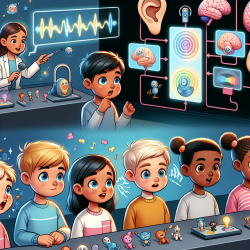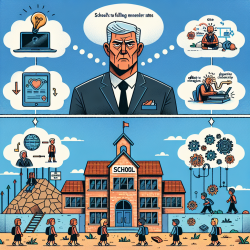Introduction
The landscape of adolescent and young adult (AYA) oncology care is evolving, with a growing emphasis on psychosocial support and resilience. The Protocol for the promoting resilience in stress management (PRISM) intervention: a multi-site randomized controlled trial for adolescents and young adults with advanced cancer provides a comprehensive framework for enhancing the quality of life for AYAs facing advanced cancer. This blog explores how practitioners can leverage the findings of this study to improve their therapeutic interventions and outcomes.
Understanding PRISM-AC
The PRISM-AC intervention is a structured, skills-based program designed to bolster resilience among AYAs with advanced cancer. It includes four core sessions focusing on stress management, goal-setting, cognitive reframing, and meaning-making, supplemented by a facilitated family meeting and a smartphone app. This program is particularly notable for its integration of advance care planning, tailored to the developmental needs of AYAs.
Key Findings and Implications
The study's primary outcome is the improvement in Health-Related Quality of Life (HRQOL) among participants. Secondary outcomes include reductions in anxiety and depression, increased resilience and hope, and enhanced family palliative care activation. The data-driven approach of PRISM-AC highlights several key implications for practitioners:
- Resilience Building: By focusing on resilience resources, practitioners can help AYAs navigate the psychological challenges of cancer, potentially improving their overall well-being.
- Advance Care Planning: Integrating discussions about end-of-life care preferences can empower AYAs and their families, aligning care with patient values and priorities.
- Family Involvement: Facilitated family meetings encourage open communication, helping to align family support with patient needs and enhancing the caregiving experience.
Practical Application for Practitioners
For practitioners, the PRISM-AC model offers a replicable framework that can be adapted to various settings, including online therapy platforms like TinyEYE. Here are some actionable steps practitioners can take:
- Incorporate Resilience Training: Develop sessions that focus on stress management, goal-setting, and cognitive reframing, tailored to the unique challenges faced by AYAs.
- Facilitate Advance Care Planning: Use tools like the Voicing My Choices guide to initiate meaningful conversations about care preferences and end-of-life wishes.
- Engage Families: Organize family meetings to discuss the patient's journey, ensuring that support systems are informed and aligned with the patient's goals.
Encouraging Further Research
While the PRISM-AC study provides a robust foundation, further research is essential to refine and expand its application. Practitioners are encouraged to explore the following areas:
- Longitudinal Studies: Investigate the long-term impact of resilience training on AYAs' quality of life and psychosocial outcomes.
- Cultural Adaptations: Adapt the PRISM-AC model for diverse cultural contexts to ensure its relevance and effectiveness across different populations.
- Technology Integration: Explore the use of digital tools and platforms to enhance the accessibility and scalability of resilience interventions.
Conclusion
The PRISM-AC intervention offers a promising approach to enhancing the psychosocial well-being of AYAs with advanced cancer. By integrating resilience training and advance care planning into therapeutic practices, practitioners can significantly improve patient outcomes. As we continue to prioritize data-driven decisions in speech-language pathology, embracing innovative interventions like PRISM-AC will be crucial in creating positive, lasting impacts for young patients and their families.
To read the original research paper, please follow this link: Protocol for the promoting resilience in stress management (PRISM) intervention: a multi-site randomized controlled trial for adolescents and young adults with advanced cancer.










